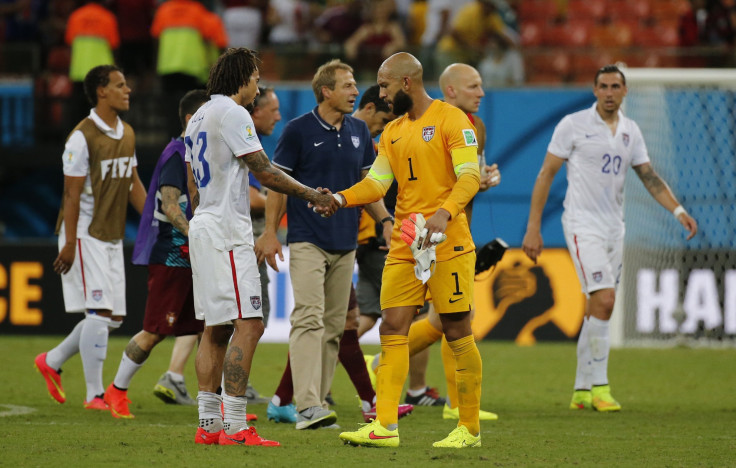World Cup Ratings: USA-Portugal Game Sets American TV Record For Soccer Viewership
Viewership reaffirms importance of live sports and growing interest in soccer.

“It’s the world’s most boring game,” Allen Barra wrote in the Philadelphia Inquirer in the summer of 1994. “World Cup soccer is so boring David Letterman couldn’t come up with a Top 10 list of things more boring, because he couldn’t find anything more boring.”
The longtime sports journalist was commenting on all the media hype surrounding the World Cup (there was a lot, even back then), and how it didn’t translate into actual TV viewership. Team USA had just lost to Brazil, and viewership was plummeting. The ratings for the first four games on ABC -- including two involving the U.S. team -- drew just a 4.8 share, or about 940,000 households. Americans, Barra concluded, weren’t interested in a sport that stifles “true American-style aggressiveness.”
Not so 20 years later.
Ratings for the 2014 FIFA World Cup are booming everywhere, but particularly in the formerly soccer-averse United States. According to Nielsen, Sunday’s 2-2 match between the U.S. and Portugal drew a staggering 18.22 million viewers for ESPN, exceeding the previous record set by the 1999 Women’s World Cup final between Team USA and China. On the Spanish-language network Univision, the game attracted another 6.5 million, meaning the game drew a total of 24.7 million viewers on traditional TV.
According to CBS News, that ties the number of people who watched the World Cup final between Spain and the Netherlands in 2010, but with additional streaming viewers taken into account (490,000 people by ESPN’s count), Sunday’s game is likely the new record holder.
The nail-biting match had suspense on its side, to say the least. The U.S. had a 2-1 lead with less than 30 seconds on the clock before Portugal’s Silvestre Varela scored a goal.
Either way, the impressive ratings will reaffirm for American media companies the importance of live sports programming in the age of DVRs and time-shifted viewing. ESPN is owned by the Walt Disney Company (NYSE:DIS). Univision is owned by the privately held Univision Communications Inc. In fact, all of the major media companies have shifted focus in recent years to live sports programming, which is the most profitable genre on television.
Wedged in between the Super Bowl, the World Series, the NBA finals and the Olympics, networks can now add professional soccer to the list of American viewers’ obsessions. On Monday, Bill Carter of the New York Times wrote that “the World Cup is moving into elite territory as a sports property on American television.” The world’s most boring game has arrived.
Team USA is set to play Germany on Thursday at noon.
Got a news tip? Email me. Follow me on Twitter @christopherzara.
© Copyright IBTimes 2025. All rights reserved.






















